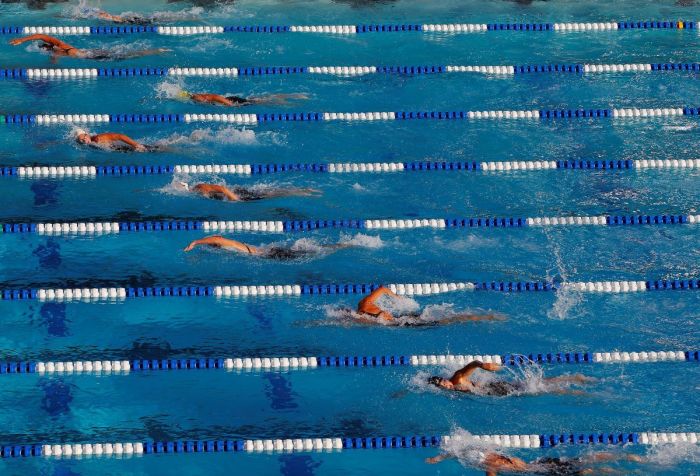World Aquatics to establish ‘open’ category for trans swimmers to promote 'fair competition'

World Aquatics is moving forward with plans to implement a separate category for trans-identified athletes to compete in amid intense debate about the fairness of allowing trans-identified male athletes to compete in women's athletics.
The World Aquatics Congress, the body that governs competitive swimming globally, held its General Congress 2023 in Fukuoka, Japan, Tuesday. The 2023 meeting took place concurrently with the World Aquatics Championships, which were also happening in Fukuoka.
In a speech, World Aquatics President Husain Al-Musallam said the organization has "protected the rights of our female athletes by creating an enclosure policy that has become the template which many other international [federations] are following." He said the "enclosure policy" seeks to protect "fair competition for our female athletes."
Al-Musallam shared his belief that "there should be no discrimination."
"Nobody should be excluded from our competitions. This is why I announced last year that I would set up a committee to look at the best way to implement an open category," he said.
"The committee work is not finished," Al-Musallam added. "This is a very complex topic. But I am delighted to tell you today that we are now making ... plans for the first trial of an open category and we hope to be able to confirm all the details soon. Our sport must be for everybody."
Al-Musallam's update comes a year after his organization, formerly known as the International Swimming Federation or FINA, revised its "gender inclusion policy" to prohibit biological males who began taking steps to transition to female after the age of 12 from competing in women's swimming events.
Several other international sports bodies, including the World Boxing Council, have implemented similar policies. Shortly after indicating that it would ban trans-identified males from competing against women last summer, the WBC reported establishing a new category in which trans-identified athletes could compete late last year.
USA Powerlifting, another organization that has prohibited trans-identified males from competing against women, has said that, on average, biological men have "increased body and muscle mass, bone density, bone structure, and connective tissue."
A study from the British Journal of Sports Medicine, published in December 2020, found that trans-identified males maintain an advantage over their biologically female counterparts even after a year of taking feminizing hormones.
Real-world examples of trans-identified males competing in women's athletic competitions have also sparked calls for policy changes, particularly in swimming.
Lia Thomas, a trans-identified swimmer formerly known as Will, broke women's swimming records and became a national champion after switching to the women's swimming team at the University of Pennsylvania following three seasons of competition on the men's team.
In the United States, 22 states have enacted policies requiring athletes to compete on sports teams that correspond with their biological sex as opposed to their stated gender identity: Alabama, Arizona, Arkansas, Florida, Idaho, Indiana, Iowa, Kansas, Kentucky, Louisiana, Mississippi, Missouri, Montana, North Dakota, Oklahoma, South Carolina, South Dakota, Tennessee, Texas, Utah, West Virginia and Wyoming.
Ryan Foley is a reporter for The Christian Post. He can be reached at: [email protected]




























